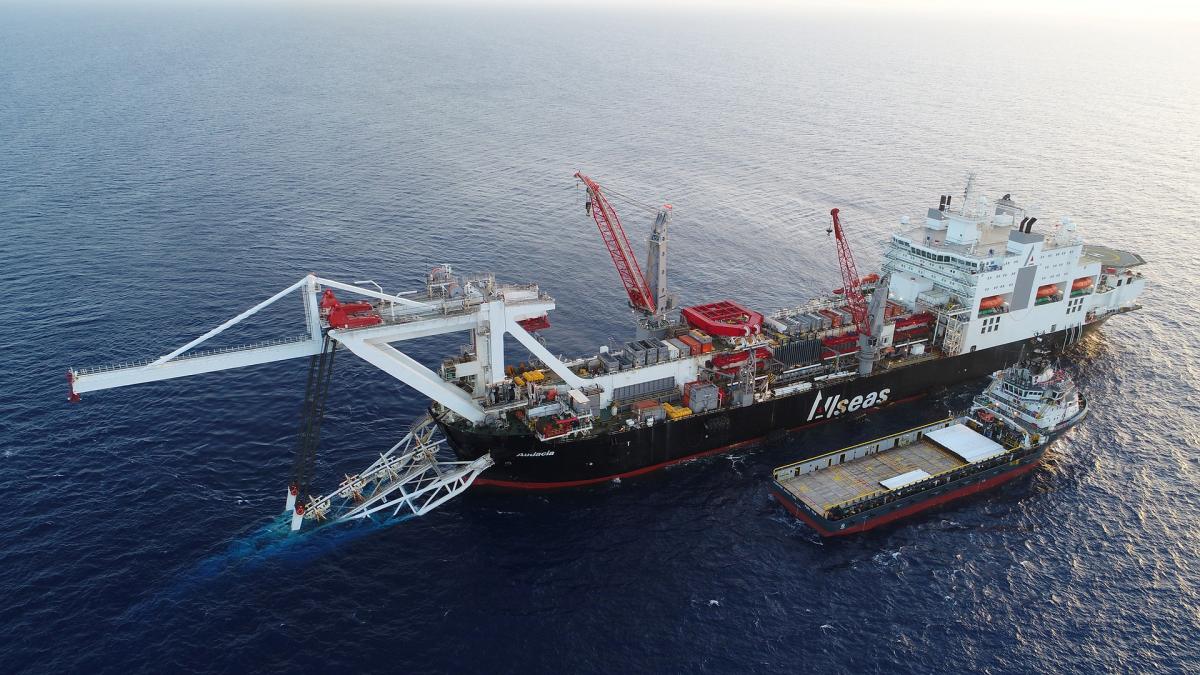
By inflicting secondary sanctions on smaller European companies involved in the Nord Stream 2 gas pipeline from Russia, the U.S. could seriously undermine the controversial project. After all, it worked with Iran.
Companies working on the Nord Stream 2 pipeline “are always in danger, because sanctions are always possible,” U.S. ambassador to Germany Richard Grenell told Handelsblatt.
The ambassador, who, unlike most career diplomats, doesn’t shy away from controversy, is hinting that the U.S. could use what are known as extraterritorial sanctions – that is, secondary sanctions that do not directly target an unfriendly nation but which are aimed at other countries a little too friendly with the unfriendly nation.
In the case of Nord Stream 2, these are countries like Germany.
However Grenell may just be rattling his sabers: He also said he was sure that the involved companies would pull out of the project, of their own accord, when confronted with the threat of sanctions.
Read alsoNord Stream 2 kills Ukraine – Poland's Foreign Minister
Secondary sanctions could happen. The U.S. has already used them in the case of Iran, targeting non-American companies which have dealings with Tehran and basically torpedoing Europe’s plan to sidestep U.S. sanctions and remain open to the Iranian economy.
The Nord Stream-2 project is a joint venture between European energy companies Uniper, Wintershall, OMV, Engie and Shell, and the state-owned Russian energy monopoly, Gazprom.
It has drawn fierce criticism from Eastern European countries like Ukraine and Poland who say it endangers their security while the U.S. opposes the pipeline for strategic reasons, saying the new link would render European allies dangerously dependent on Russian gas.
Sources in the German government believe that, if extraterritorial sanctions did happen, the US would first target smaller, specialist firms involved in Nord Stream 2’s construction. These might include the likes of the Allseas Group, with headquarters in Switzerland and operations in the Netherlands, that is responsible for laying sections of pipeline, and the Italian engineering firm Saipem.
Allseas is set to lay over 90% of the pipeline. There would be an impact on the project as a whole because Allseas is a specialist that could not easily be replaced, industry sources say.
The German government is alarmed by talk of secondary sanctions. The German Foreign Office has raised concerns with U.S. counterparts. “We are in intensive talks about Nord Stream 2,” the ministry said in a statement. “We are trying to show them that, at all levels, this is a solely economic project, that will help improve European energy security above all.”
Read alsoHow to stop Nord Stream 2 and destroy Russian-German alliance bound with gas and corruption
However, there is plenty of debate on the controversial nature of the pipeline project in Europe and inside Germany itself. For months now, opponents of the project – even some inside the German government – have been saying the pipeline needs to be reassessed because when the decision to build it was made, not enough attention was paid to the well-founded security fears of eastern European states about Russian influence.
“Nord Stream 2 is killing Ukraine,” Poland’s foreign minister, Jacek Czaputowicz, told Handelsblatt. “If the Russian gas transit through Ukraine ends, the country doesn’t just lose significant income, it also loses the guarantee of protection against further Russian aggression,” he argued. “We need more decisive actions against Russia, through the EU and NATO.”
When it comes to this argument in Germany, U.S. sanctions could well backfire. Even staunch opponents of Nord Stream 2 here could change their minds about the pipeline if they witness “U.S. interference” in German affairs. They would essentially end up on Trump’s side, a place many won’t want to be.

